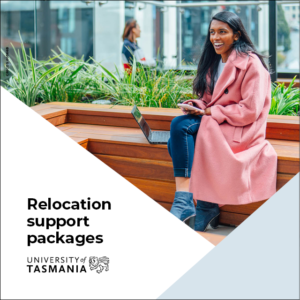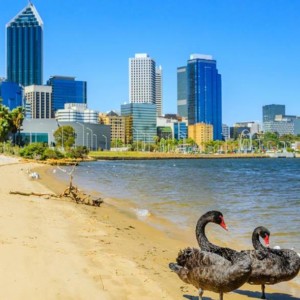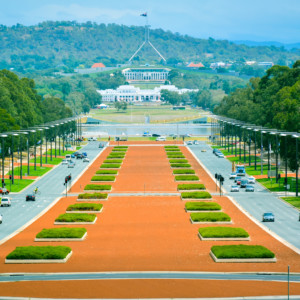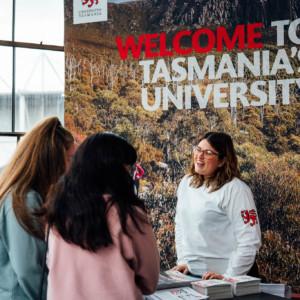Please note that these arrangements remain in place until further notice.
SKILLED MIGRATION PROGRAM
Interim visa nomination allocations and priorities
What has changed?
The Department of Home Affairs has issued an interim allocation of subclass 491, 190, 188 and 132 visa nomination places to states and territories. These allocations have not yet been updated. We expect that the interim nomination arrangement will continue until early – mid December 2020.
The Department of Home Affairs has directed that, all nominations must be justifiable in relation to their likely contribution to Australia’s economic recovery, and follow three priorities:
- High quality subclass 188 and 132 (Business Innovation and Investment Program) nomination applications.
- Applicants critical to supporting Tasmania’s response to the COVID-19 pandemic, including individuals providing critical or specialist medical services, critical skills required to maintain the supply of essential goods and services, or delivering services in sectors critical to Australia’s economic recovery.
- Applicants currently in Australia who can demonstrate their capacity to meaningfully contribute to economic recovery.
What does this mean for applicants?
All new and existing nomination applications will be considered according to these priorities, with those in critical roles being nominated first.
Existing applicants who are not in critical roles will be considered only after priority applications for critical roles have been processed.
Imminent visa expiry is not normally sufficient to give priority to an application. If your visa is about to expire you should contact the Department of Home Affairs or a Registered Migration Agent about your visa options.
What does it mean for applications lodged before 1pm (AEST), Tuesday 25th August 2020 (Subclass 491 / Subclass 190)?
Migration Tasmania is competitively assessing all existing applications in accordance with priorities established by the Department of Home Affairs.
With the very limited number of nomination places available, nomination cannot be guaranteed and only those in critical roles or able to provide the most compelling claims will be supported.
What does it mean for applications lodged after 1pm (AEST), Tuesday 25th August 2020 (Subclass 491 / Subclass 190)?
All new applications lodged after 1pm (AEST), Tuesday 25th August 2020 must meet the minimum requirements of their chosen nomination category and demonstrate that the applicant is critical to supporting Tasmania’s response to the COVID-19 pandemic and recovery.
Applicants mustprovide a letter of support from their employer clearly explaining how their role is critical to providing medical services, the supply of essential goods and services, or delivering services in sectors critical to Tasmania’s economic recovery. If an applicant cannot show that their role is critical, it will not be supported for nomination.
This requirement will be reviewed after the Federal Budget in October when full details of the 2020-21 nomination allocations and requirements are announced by the Department of Home Affairs.
What are critical roles?
The Department of Home Affairs provides guidance on critical roles or critical skills at https://covid19.homeaffairs.gov.au/critical-skills-and-sectors#toc-1. For Tasmania these roles include those:
- directly assisting in Tasmania’s COVID-19 response directly engaged by Tasmanian Government
- providing critical or specialist medical services or delivering medical supplies potentially associated with COVID-19 response. This includes all general nursing and medical positions with the Tasmanian Health Service
- directly involved in the supply of essential goods and services (medical technology, critical infrastructure, telecommunications, engineering and mining, supply chain logistics, agricultural technology, food production, and the maritime industry) including highly skilled and specialised roles in:
- infrastructure engineering and maintenance such as dams, large-/high-complexity bridges, irrigation schemes, transport logistics planning and maintenance
- agriculture such as artificial insemination technicians, wool classers, livestock pregnancy scanners
- the supply of essential goods and services which would be in jeopardy without the applicant.
*This does not include lower level positions such as retail workers, harvest labour, delivery drivers, or warehouse staff.
- delivering services in sectors critical to economic recovery such as financial technology, large scale manufacturing, film and television production and emerging technology which:
- must be high-value/highly-skilled/specialised roles
- would normally include a significant and recognised contribution to export income, significant flow-on employment and economic benefits, high-value national/ international exposure.
*This will not generally include small scale, locally-oriented operations.
In addition, Tasmania will accept new applications from people employed in:
- health and allied health occupations, including in private and not-for-profit sectors
- senior support workers/enrolled nurses/registered nurses in aged, disability and community care (minimum diploma qualified).
Note: Chefs and Cooks – Now included in interim program
All new and existing nomination applicants employed full-time as chefs or cooks will be considered for the interim quota, if their visa is due to expire before 31 December 2020. Applicants must be in a genuine and ongoing skilled role with a minimum qualification Certificate III in Commercial Cookery or skills assessment as a Chef or Cook. This does not normally include lower-skilled employment in limited service restaurants, e.g. sushi makers, pizza makers.
The scope of these priority areas may change as the needs of Tasmania’s economy evolves.
What is a genuine, ongoing and meaningful contribution to the Tasmanian economy?
Every nomination must be justified in terms of an applicant’s potential to contribute to economic recovery in Tasmania. The onus is on the applicant to demonstrate how they meet this requirement.
Supporting claims may include:
- employment in highly skilled, hard to fill roles
- high value skills or experience not readily found in the local community
- long-term high-value financial contribution to the local economy leading to additional employment outcomes for locals
- involvement in Tasmanian business or enterprise that is significantly reliant on the applicant’s ongoing presence in Tasmania
- a clear, plausible potential to live in Tasmania and contribute to the development of skills which are needed in Tasmania.
Where can I find more information?
Further information about the interim program priorities and advice for applicants can be found HERE
Critical Roles
What are critical roles?
Which critical sectors or occupations are preferred?
My employer says I am critical to the business, do I work in critical role? While you may be very important to your employer, this does not necessarily mean your role is critical. The Department of Home Affairs provides some guidance on critical roles or critical skills at https://covid19.homeaffairs.gov.au/critical-skills-and-sectors#toc-1. In relation to Tasmania these roles include:
- assisting directly in Tasmania’s COVID-19 response (directly engaged by Tasmanian Government due to their specialist skills and experience)
- providing critical or specialist medical services or delivering medical supplies potentially associated with COVID-19 This includes all general nursing and medical positions with the Tasmanian Health Service
- directly involved in the supply of essential goods and services (medical technology, critical infrastructure, telecommunications, engineering and mining, supply chain logistics, agricultural technology, food production, and the maritime industry)
- must be highly skilled and specialised roles
- includes infrastructure engineering and maintenance including dams, large / high complexity bridges, irrigation schemes, transport logistics planning and maintenance
- in agriculture includes specialist roles such as artificial insemination technicians, wool classers, livestock pregnancy scanners
- supply of these essential goods and services in jeopardy without the applicant
- does not include lower level positions such as retail workers, harvest labour, delivery drivers, warehouse staff
- delivering services in sectors critical to economic recovery (such as financial technology, large scale manufacturing, film and television production and emerging technology)
- must be high value / highly skilled / specialised roles
- would normally include a significant and recognised contribution to export income, significant flow-on employment and economic benefits, high value national / international exposure
- would not normally include small scale, local oriented operations
In addition, Migration Tasmania will accept new applications from people employed in the following areas:
- health and allied health occupations, including in private and not-for-profit sectors
- senior support workers /enrolled nurses / registered nurses in aged, disability and community care (minimum Diploma qualified)
- qualified chefs and cooks who are working full time in the hospitality industry and whose visa is due to expire before 31 December (See I am a chef, do I work in a critical role?)
Migration Tasmania may add to these areas as the needs of Tasmania’s economy evolves.
General questions
Why has the process changed?
The Department of Home Affairs has issued a small full nomination quotas are available (expected by early – mid December 2020). The Department of Home Affairs has directed that these places be used to support the COVID19 response, and industries critical to the economy. Every nomination must support economic recovery.
What will happen after we receive the full program year quota? Will the process go back to normal?
The Australian Government is still deciding the total size and shape of the state and territory nominated visa program. We do, however, expect the program will remain focussed on contributing to economic recovery for the 2020 – 2021 program year.
When will my application be processed?
Migration Tasmania will process applications and nominate according to the priorities set out by the Department of Home Affairs. This means applicants who are engaged in critical roles will be considered and nominated first, regardless of when they applied. Pending discussions with the Department of Home Affairs, other applicants may be nominated later if there are places remaining if they can demonstrate they will be able to make a genuine contribution to Tasmania’s economic recovery. This may mean some applicants will experience very long processing times and may want to investigate other visa options.
My visa is about to expire, can you prioritise my case?
No. Visa expiry is not a sufficient reason to prioritise a case, unless you are in a critical role. If your visa is about to expire you should contact the Department of Home Affairs or a Registered Migration Agent about your visa options.
How many places for subclass 491 visa and subclass 190 visa does the Tasmanian Government have left?
We have been given a small interim quota. Final program year allocations are not expected to be known until early December. We currently have many more applications than nomination places available.
How will Tasmania change its occupation list this year?
We are currently reviewing the Tasmanian Skilled Occupation List (TSOL) in line with the emerging needs of the Tasmanian economy and the advice of the Australian Government National Skills Commission. We expect to complete our review shortly.
I work in a food distribution warehouse
I am a delivery truck driver for a food distribution logistics company I am a farmhand/meat processor
Do I work in a critical role?
No. You must be directly involved in the supply of essential goods and services, and supply must be in jeopardy if your employment ceased. These would normally be highly skilled, specialist roles.
I am a chef, do I work in a critical role?
All new and existing nomination applicants employed full-time as chefs or cooks will be considered for the interim quota, if their visa is due to expire before 31 December 2020. Applicants must be in a genuine and ongoing skilled role with a minimum qualification Certificate III in Commercial Cookery or skills assessment as a Chef or Cook. This does not normally include lower-skilled employment in limited service restaurants, e.g. sushi makers, pizza makers.
Do critical roles also include Registered or Enrolled Nurses and other skilled occupations in aged or disability care?
Registered and Enrolled Nurses, allied health professionals and senior support workers engaged in the aged, community and disability support sectors are critical to Tasmania. We will continue to
accept applications from and nominate people engaged in this sector as a high priority if they have a minimum diploma qualification and are working in at least a senior support role.
Other workers in the sector will be considered alongside other applicants if there are available nomination places.
I operate a small business with strong income and turnover. Is this considered critical?
Small business owners making a strong or potential contribution to the local economy may be considered important to the state’s economic recovery. Positive attributes may include:
- employment of locals
- flow-on effects to the local economy
- providing valuable services not otherwise available in the community
- strong export income
- contribution to Tasmania’s brand image and exposure
Tasmanian graduates
Will international students in Tasmania be able to be nominated in the future?
We value the contribution that international student graduates make to the Tasmanian community and expect that they will continue to play an important role in Tasmania’s migration program into the future. The current focus of the 2020 – 2021 skilled migration program is on people who can directly assist the COVID19 response and economic recovery. International student graduates who demonstrate their capacity in this area will have strong claims for nomination. While priorities for future program years are not yet clear, we expect that a focus on the skills and experience needed into the future will be important. We encourage students to study and obtain skills in areas which will give them the best chance of being able to contribute to Tasmania’s economy in the long term.
I’ve been in Tasmania for two years. I am a graduate but I don’t work in a critical area. What should I do?
If you have not yet applied for nomination you will not be eligible for consideration at this stage. You may consider applying for nomination sometime in the future when more places are available. You may want to investigate other visa options which will allow you to develop your skills and demonstrate your
contribution to Tasmania’s economy.
If you have already applied for Tasmanian state nomination and you can demonstrate your contribution to Tasmania’s economic recovery, you may be considered for any nomination places available after we have exhausted higher priority candidates.
I’m planning to move to Tasmania to study, will I be nominated?
I am one year into a three year course at the University of Tasmania. Will I be able to be nominated after I graduate?
What skills do I need to be nominated? What should I study?
There is never any guarantee of state nomination. Nomination priorities change according to the needs of the Australian and Tasmanian economies. The current focus is on supporting critical industries and economic recovery. We encourage students moving to Tasmania to gain skills in areas which will be important to Tasmania’s future needs. Some resources to guide you in your choice of study include:




















この記事へのコメントはありません。